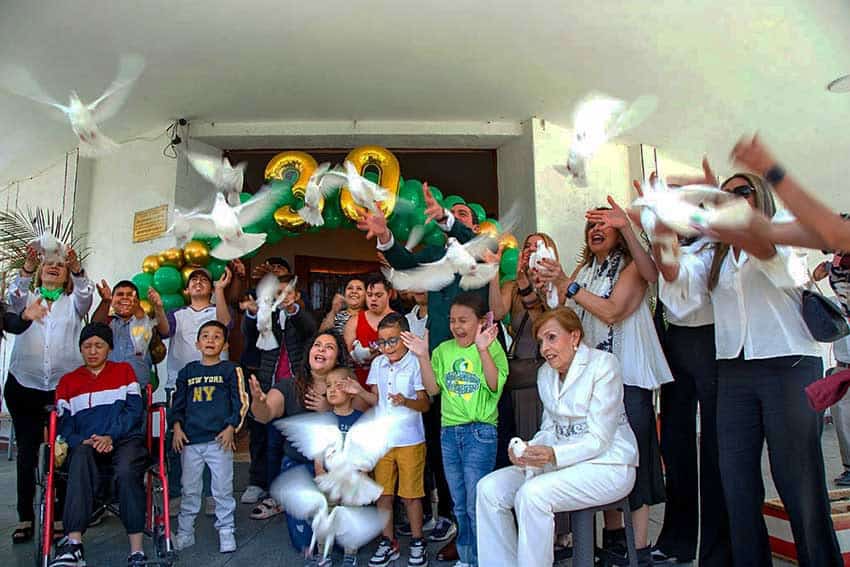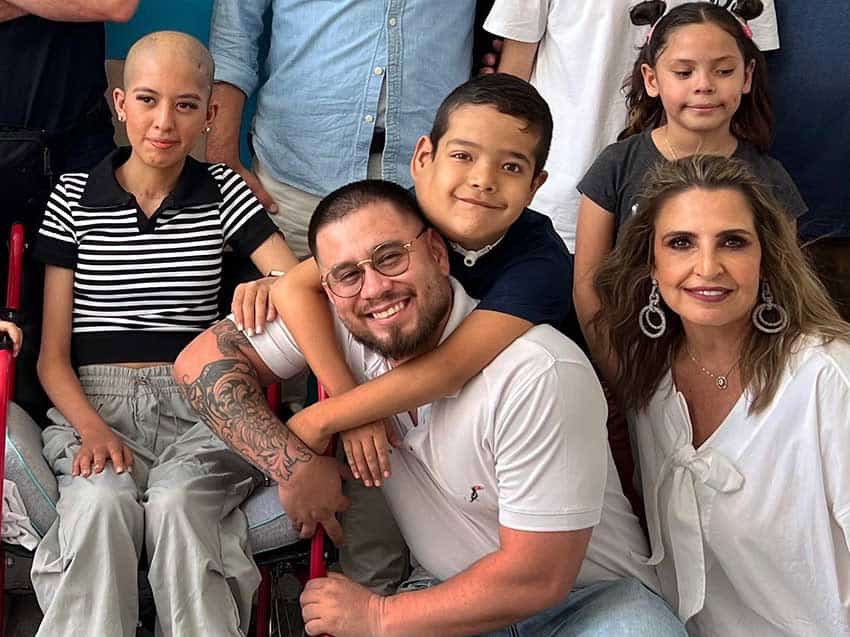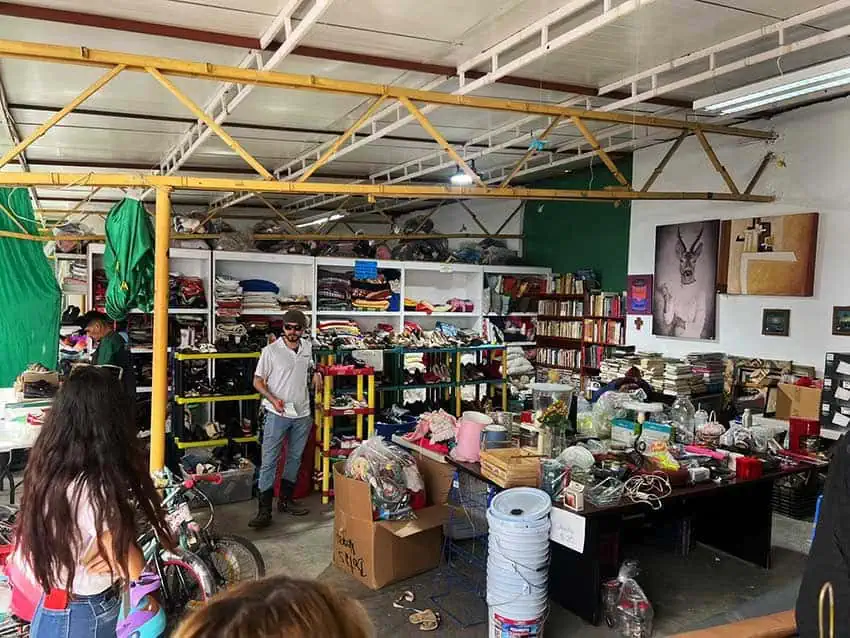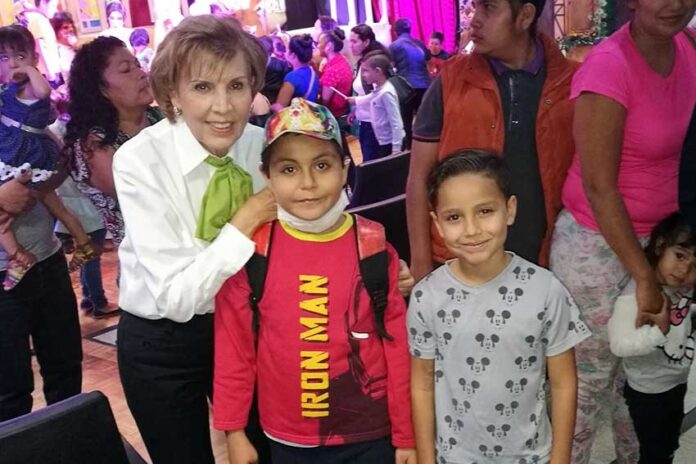Cancer is frightening enough when it afflicts adults. To see it strike children is truly heartbreaking. But what about children whose families have no insurance and no resources?
In 1995, Bertha Padilla de Pérez came upon such children in Guadalajara’s Fray Antonio Alcalde Hospital — too many of them.

Bertha had been invited to tour the hospital by her cousin, pediatrician Horacio Padilla.
“How can I help?” she asked him.
In short order, she and 14 friends set up an Asociación Civil, a nonprofit organization collecting food, clothes, and medicines for the needy families.
They called themselves Mi Gran Esperanza, My Big Hope, and, little by little, they reached the point where they could buy a house where family members of the children — who came from all over Jalisco and neighboring states — could stay, free of charge.
6,500 kids later
“This is how we started out, with zero pesos,” I was told by Mayte Medrano, the present-day Director of Mi Gran Esperanza, “and during the last 30 years we’ve been able to help over 6,500 patients. Today, many of those patients have grown up, completely recuperated, with families of their own.”

At the moment, Mi Gran Esperanza is helping some 500 families.
“We provide them with a food basket, medicine, treatments like immunotherapy, x-rays, or mammograms, but we also give them workshops, which is very important when the problem is cancer. They need healthy food and good hygiene and we make sure they get the message.
“My job as Director is to keep funds coming in so all this can go on, to contact government, foundations, embassies, corporations, to schedule events, and to train an interdisciplinary team.”
Transparency
Medrano told me she is working on ways to make Mi Gran Esperanza more international, so donations they receive from abroad will be tax-deductible in the donor’s country.
“I’m thinking about people in the U.S.,” she told me. “They are very generous with causes like ours. Here in Mexico, there is more skepticism. So one of the pillars of our organization is transparency. We want people to be sure that every peso they give to Mi Gran Esperanza goes directly to the patients’ treatments. This has become part of our reputation. People know that we do things well.”
One of the ways Mi Gran Esperanza raises money is by holding a bazaar once or twice a month.
I asked one of the volunteers at the bazaar, expat John Baird, what it’s like.
Knick-knacks and a coffin
“After my wife died,” Baird told me, “I was looking for something to do, so I started going to their facility in downtown Guadalajara and offering to help. They have three or four trucks that go out every day and make the rounds, and they pick up recycled paper, bottle caps, knick-knacks, furniture and clothes, which they bring to the recycling center where it gets sorted by volunteers like me. By the way, you never know what is going to be in a bag or a box when you open it. For example, we found a miniature, handmade coffin three weeks ago. There were 43 hearts painted on it, so I knew it referred to the 43 students in Guerrero who disappeared in 2014. This coffin was probably carried in a march.
“Once a month, they also receive donations of food items, which they give to people who have a family member being treated in the Civil Hospital. I help hand out the food when I can.
“I usually go there twice a month. It’s sweaty, good work for a good cause. It’s fun!”

Since Mi Gran Esperanza has been around for 30 years, I asked Mayte Medrano if she could put me in contact with one of the children they helped years ago, now grown to adulthood.
From cancer patient to manager
“That’s easy,” she said. “We have a staff member right here who came to Mi Gran Esperanza 25 years ago with cancer and today he is our Communications Manager. Meet Erick Cervantes!”
“I’m from Guadalajara,” Cervantes explained. “When I was seven years old, they discovered I had a form of Hodgkin’s Disease. So I went to the old Civil Hospital, and then they accepted me in the new building. That’s when I got help from Mi Gran Esperanza for medicines that I needed and for treatments that the hospital couldn’t provide.
“For ten months, I received chemotherapy at the hospital and 20 or 25 sessions of radiation therapy. After that, they pronounced me free of cancer, but for the next 10 years, I was monitored and had to make regular visits to the hospital for studies and checkups.
“So I was able to go study Business Administration… and today I’m a manager at Mi Gran Esperanza,
“I’m happy to be giving something back to Mi Gran Esperanza for what it gave to me and to my mother.”
John Pint has lived near Guadalajara, Jalisco, for more than 30 years and is the author of “A Guide to West Mexico’s Guachimontones and Surrounding Area” and co-author of “Outdoors in Western Mexico.” More of his writing can be found on his website.
